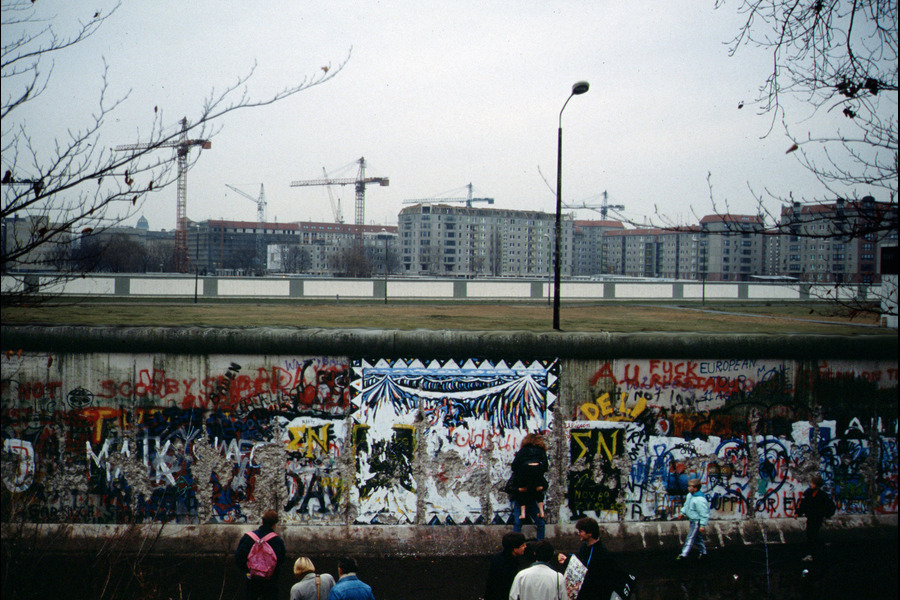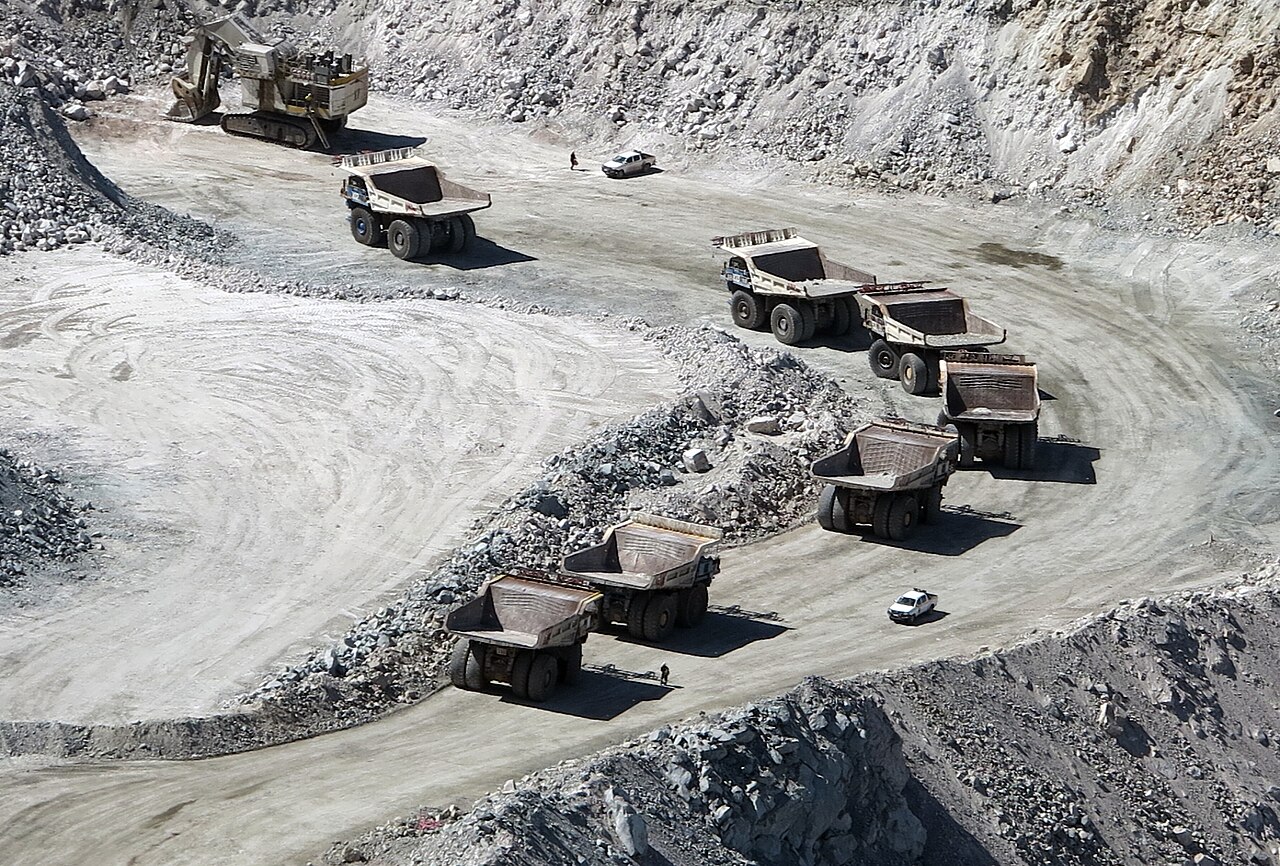Published by The Lawfare Institute
in Cooperation With

August Memories
Earlier this month, the six private sector partners in the Nord Stream II pipeline project announced they would withdraw their application to form Nord Stream 2 AG, the joint venture responsible for the project. The companies abandoned their plans after the antitrust regulator in Warsaw, the Polish Competition Authority, filed a formal Statement of Objections against the project, leaving Gazprom holding the bag. This was followed this week by a warning from the Ukrainian Antimonopoly Committee to the companies to refrain from activities which might restrict competition.
The controversial project, which would increase the gas relationship between Russia and Germany and potentially bypass the Ukraine as a gas transit route to Europe, has raised hackles in central and eastern European capitals and is at the heart of the energy security debate. As Keith Johnson reports, Poland opposes the project, viewing it as a Trojan horse for Russian influence and leverage. And through the exercise of antitrust law and competition regulation, the country may have finally found a way to make its objections heard. However, while the regulator has until the end of the year to make a final decision, the likely result is a delay and not a derailment. The companies, for their part, stated they would “individually pursue ways to contribute.”
Nord Stream is far from the only issue on Russia’s plate this month. The conflict in Ukraine has escalated in recent weeks, and a natural gas pipeline in Donetsk was reportedly hit by artillery fire last week. Meanwhile, the Ukrainian company Naftogaz has accused Russia’s Gazprom of failing to maintain the contractually required pressure in its pipelines to enable exports to European customers beyond Ukraine. This all amid increased violence and a fraying ceasefire in what many are calling Russian efforts to heighten hostilities—and pressure—in advance of the G20 meeting in September.
According to the Financial Times, attempts to ramp up pressure include deployment of Russian troops along the northern, eastern, and southern Ukrainian borders, as well as a suspected deployment in Crimea. This follows Russian accusations that Ukraine orchestrated an attempted terrorist attack in Crimea earlier this month.
Coincidence? Anders Aslund thinks not. Aslund argues that August has traditionally been a chaotic month in Russian history—and the preferred month for strategic maneuvers, as European policymakers are preoccupied with getting a tan.
Elsewhere in August...
After a summer of high-profile terrorist attacks in Europe and elsewhere and a growing concern that violence may spread to the Caucasus, the Georgian state security services reportedly disrupted a planned terrorist attack on the Russia-Armenia gas pipeline on Monday. The pipeline, operated by Gazprom, is crucial in supplying heavily dependent Armenia with energy imports. In addition to threatening energy supply, an attack in the region could also serve as a flashpoint for broader geopolitical tensions, which run high between Georgia and Russia, as well as Armenia and Azerbaijan. The news further underscores the degree to which critical energy infrastructure can serve as an attractive target to erstwhile terrorists.
Foul Weather Friends?
While things have heated up in Ukraine, Turkish-Russian relations have thawed considerably. In another August maneuver, Putin has made up with sometimes friend, sometimes foe Turkish president Erdogan (perhaps bonding over a mutual love of conspiracy theories, like the one where the U.S. orchestrated the July 15 coup in Turkey, or the one in which Russian special forces saved Erdogan’s life).
While the fallout from the coup in Turkey certainly present a military opportunity for Russia to further inject itself into the conflict in Syria and the broader Middle East, rapprochement with Turkey also gives Russia the opportunity to reaffirm energy ties. However, while Putin promised to re-start energy projects put on hold during the recent kerfuffle, the timeline is long, and while Turkey has growing energy needs, it also has many potential options. Furthermore, as Nick Danforth and Chris Miller write in Foreign Affairs, this may not be a match made to last, as there are several outstanding issues over which the two might find themselves at odds (think Cyprus, Crimea, and the Caucasus).
However, located at a geopolitical and energy crossroads, Turkey has long hoped to position itself as an energy hub--and reap the influence that goes along with such a position. But as Georgetown’s Brenda Schaffer told Anadolu News Agency, Turkey already is an important energy transit state, although not a hub, which would require energy to be traded there, in addition to transiting. However, given Turkey’s increased role at the center of planned pipeline projects in the Southern Corridor Project, it is likely that their role and influence will continue to grow, with or without increased energy ties with Russia.
Neighborhood Watch
However, Turkey’s options also depend on its neighbors—and on finally making good on the whole “zero problems” strategy. Namely, problems with Cyprus.
As the politics of the region continue to evolve—and as the U.S. election and subsequent administration change draws closer—many are calling for progress in the resolution of the Cyprus conflict while Secretary Kerry and Vice President Biden, both of whom are deeply engaged, remain in office. As the clock counts down, Harry Tzimitras, Director of the Peace Research Institute Oslo’s Cyprus Center, calls for “no more lost opportunities” in resolving the remaining disagreements. He further argues in a new Atlantic Council report written with Charles Ellinas that while hydrocarbon development is stymied by the outstanding disagreements and division of the island, it also provides an impetus for resolving them.
While it is popular to hail oil and gas resources as a wedge for cooperation, Tzimitras and Ellinas argue in the report, entitled Hydrocarbon Development in the Eastern Mediterranean: The Case for Pragmatism, that expectations for the region should remain reasonable, achievable, and focused on local and regional markets. However, for Cyprus the most logical regional market is Turkey. While Erdogan has mended fences with Russia and Israel, among others, this may be more rapprochement than they are ready for.
What to Watch
When Bad Gets Better...
According to Quartz, the Niger Delta Avengers, the militant group responsible for a rash of pipeline bombings and sabotage in Nigeria over the last few months have announced they will put down their weapons and enter into negotiations with the central government. The ceasefire, and a potential agreement or negotiated peace, would be welcome news in the country, where oil production and exports have dropped precipitously. However, it is tenuous. According to a statement on a website purportedly run by the group, they will “fight more for the Niger Delta, if this opportunity fails.”
And When it Doesn’t...
As the slow motion crisis in Venezuela grinds on, the bad new just keeps on coming for the beleaguered oil producer. While the electricity crisis has (for the moment) abated, another has risen to take its place—falling oil production. According to a recent report by the Columbia SIPA Center on Global Energy Policy, exports in June fell to their lowest level in years. And according to author Luisa Palacios, the worst is yet to come.
Palacios writes that the combination of low oil prices, falling production, and thus falling revenues have resulted in paltry energy sector investment in the country, while the state-owned Petroleos de Venezuela (PDVSA) is having difficulty making payments on its debts. As the company sinks further in the red, it is increasingly unable to invest in upgrades, make payments to service companies and partners, and pay for the imports of light crude it needs to mix with the heavier oil it produces.
This comes as concerns for the country’s domestic stability have taken center stage. According to Bloomberg, the domestic economy is anticipated to shrink 10 percent this year, while the Financial Times reports that Venezuelans are flooding across the Colombian border in search of food and medicine, malaria has reemerged, and many Venezuelans are looking for an escape route (indeed, according to Pew, asylum applications to the U.S. from Venezuela have skyrocketed).
The opposition is calling for a mass demonstration September 1, while there are reports that Venezuela will once again try to convince a thus far unwilling OPEC to agree to a production freeze or cut in Algeria next month. However, as Lisa Viscidi writes in Foreign Affairs, in order to recover Venezuela will also have to fix flawed policies at home, including those which keep gas prices (and thus profits) artificially low, and the reliance on the national oil company to serve as revenue generator, supporter of social programs, and international company all at once.





